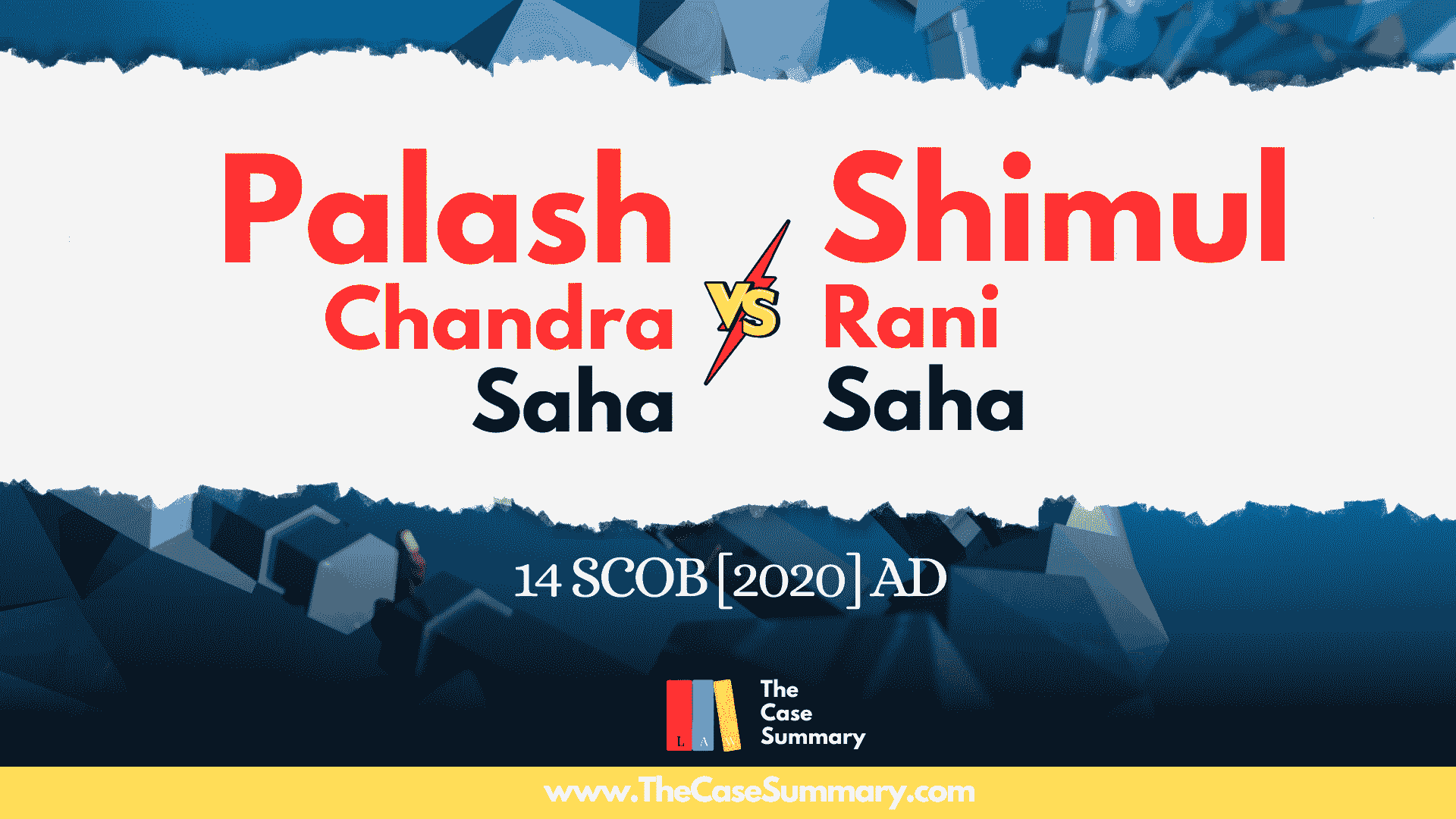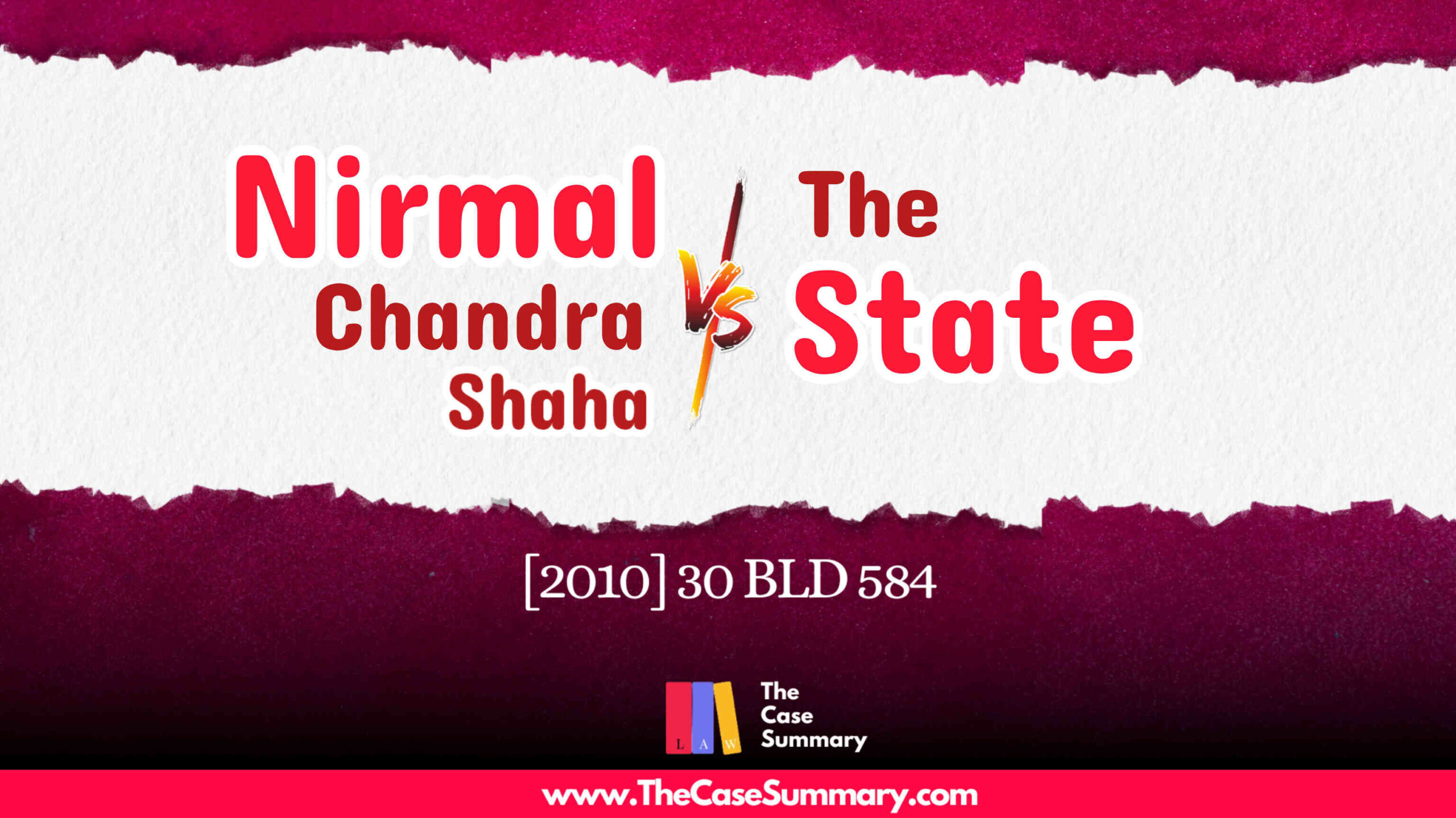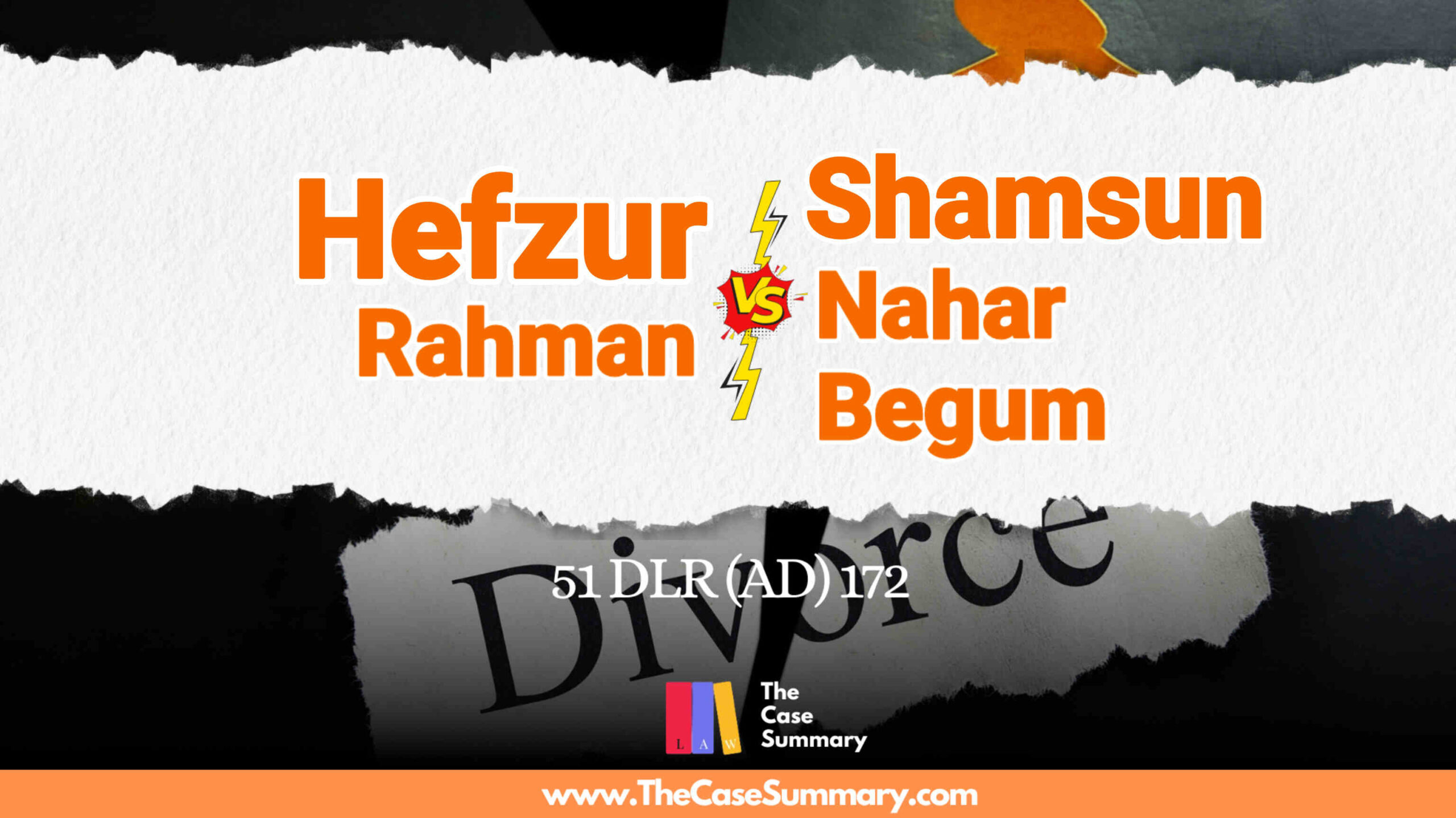Palash Chandra Saha vs Shimul Rani Saha and others
Reference : 14 SCOB [2020] AD
Jurisdiction : Bangladesh
Appellant : Palash Chandra Saha
Respondent : Shimul Rani Saha and others
Facts :
The plaintiff, Palash Chandra Saha, stated that he was born on 3rd Bhadra, 1375. His biological parents were Nishi Kanta Das and Charubala Das. Charubala passed away when the plaintiff was six months old. At that time, late Khitish Chandra Saha and Gouri Rani Saha (defendant no. 4) were childless and expressed a desire to adopt the plaintiff. The adoption ceremony was held on 15th Falgun, 1375. Since then, Palash Chandra Saha began living with Khitish Chandra Saha as his adopted son. Following the adoption, the plaintiff severed all ties with his biological father.
While the plaintiff was being raised by his adoptive parents, their only daughter, Shimul Rani Saha (defendant no. 1), was born. Khitish Chandra Saha admitted the plaintiff to school, listing himself as Palash Chandra’s father on all school documents, including the plaintiff’s SSC and HSC certificates and voter ID card. In 1993, Khitish Chandra Saha filed a suit where he explicitly referred to the plaintiff as his adopted son. After the death of Khitish Chandra, the plaintiff performed all the required rituals as his son. His adoptive mother (defendant no. 4) continued to live with him, and he also allowed his adoptive sister and her family to stay with him.
On the other hand, Shimul Rani Saha contended that the plaintiff was neither an adopted nor a foster son of late Khitish Chandra. She claimed that the plaintiff was merely a cashier in her father’s sweetmeat shop. Shimul Rani asserted that, under Hindu law, her two sons inherited all the movable and immovable property of Khitish Chandra Saha. Furthermore, she alleged that the lawsuit filed by Palash Chandra Saha was based on false claims and allegations. She also pointed out that the suit was filed long after the death of Khitish Chandra Saha.
Issues :
1. Would the adoption of Palash Chandra Saha be considered as valid under Hindu Law?
2. Should all the properties inherit by Palash Chandra Saha?
Arguments :
Learned Counsel Mr. A.J. Mohammad Ali represented plaintiff in the Court of Appeal. He said that both the trial Court and the appeal Court recognized the plaintiff as a legally adopted son. He brought the “Factum Valet” principle and argued that, even if the adoption did not adhere to all Hindu legal requirements, it should be considered valid under the principle of factum valet, since the intent and substantial actions to adopt were present. Moreover a question was raised in the Court regarding the mismatch of the caste. The learned Counsel contended that, even though the plaintiff’s natural family belonged to the Sudra caste, Saha is a sub-caste of Sudra. Hence, the adoption was valid as per Hindu law, since they belong to the same caste or sub-caste.
On the other hand, The learned counsel for the defendants argued that the suit was barred by limitation under Clause 119 of the Limitation Act, 1908, as it was filed long after the cause of action arose. Moreover, a problem arose, whether the plaintiff was an adopted son or merely a foster son of late Khitish Chandra Saha. The evidence suggested that Palash was not an adopted son of but rather a foster son of late Khitish Chandra Saha. The learned counsel also argued that the caste of Palash Chandra and Khitish Chandra did not match initially, as Palash Chandra was born into the family of Nishi Kanta Das, who belonged to the Sudra caste. Therefore, the plaintiff’s name was originally Krishna Chandra Das. However, ‘Saha’ belonged to the Vaisya caste. Consequently, the adoption was unlawful under the provisions of Hindu Law as the adoptive father and the adopted son belonged to two different castes. He also denied the plaintiff’s reliance on the principle of factum valet, arguing that it cannot validate an adoption that directly contravenes Hindu legal texts, which mandate strict adherence to caste rules in adoption.
Decisions :
The Court of Appeal stated that the caste mismatch between the plaintiff and Khitish Chandra Saha prohibited the adoption, rendering it illegal and void. Furthermore, the court found that Palash Chandra Saha was never an adopted son but rather a foster son of Khitish Chandra Saha. A foster son cannot claim inheritance like an adopted son.
Moreover, the appellant failed to file the appeal within the time limit stipulated in Section 119 of the Limitation Act, 1908. Therefore, the Court dismissed the appeal.
Relevant Principle :
Doctrine of Factum Valet : The doctrine of factum valet is a Latin maxim that means “what ought not to be done is valid, when done.”
Relevant Law :
- The Limitation Act, 1908
- Section : 119
Author :
1. Nusiba Hasan Ohee
Note : The Case Summary is a platform by the law students, for the law students. We aim to summarize the facts and decisions of various important cases in both Bangla and English with utmost caution. However, this platform is in no way a replacement for going through the complete judgements by the law students and we discourage any learner from relying on case summaries alone. Thank you



